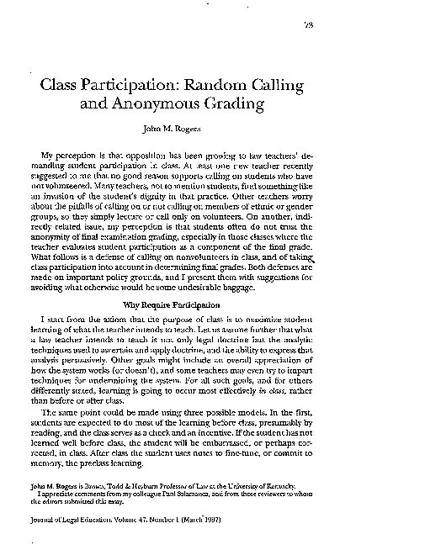
My perception is that opposition has been growing to law teachers' demanding student participation in class. At least one new teacher recently suggested to me that no good reason supports calling on students who have not volunteered. Many teachers, not to mention students, find something like an invasion of the student's dignity in that practice. Other teachers worry about the pitfalls of calling on or not calling on members of ethnic or gender groups, so they simply lecture or call only on volunteers. On another, indirectly related issue, my perception is that students often do not trust the anonymity of final examination grading, especially in those classes where the teacher evaluates student participation as a component of the final grade. What follows is a defense of calling on non-volunteers in class, and of taking, class participation into account in determining final grades. Both defenses are made on important policy grounds, and I present them with suggestions for avoiding what otherwise would be some undesirable baggage.

Journal of Legal Education, Vol. 47, No. 1 (March 1997), pp. 73-82